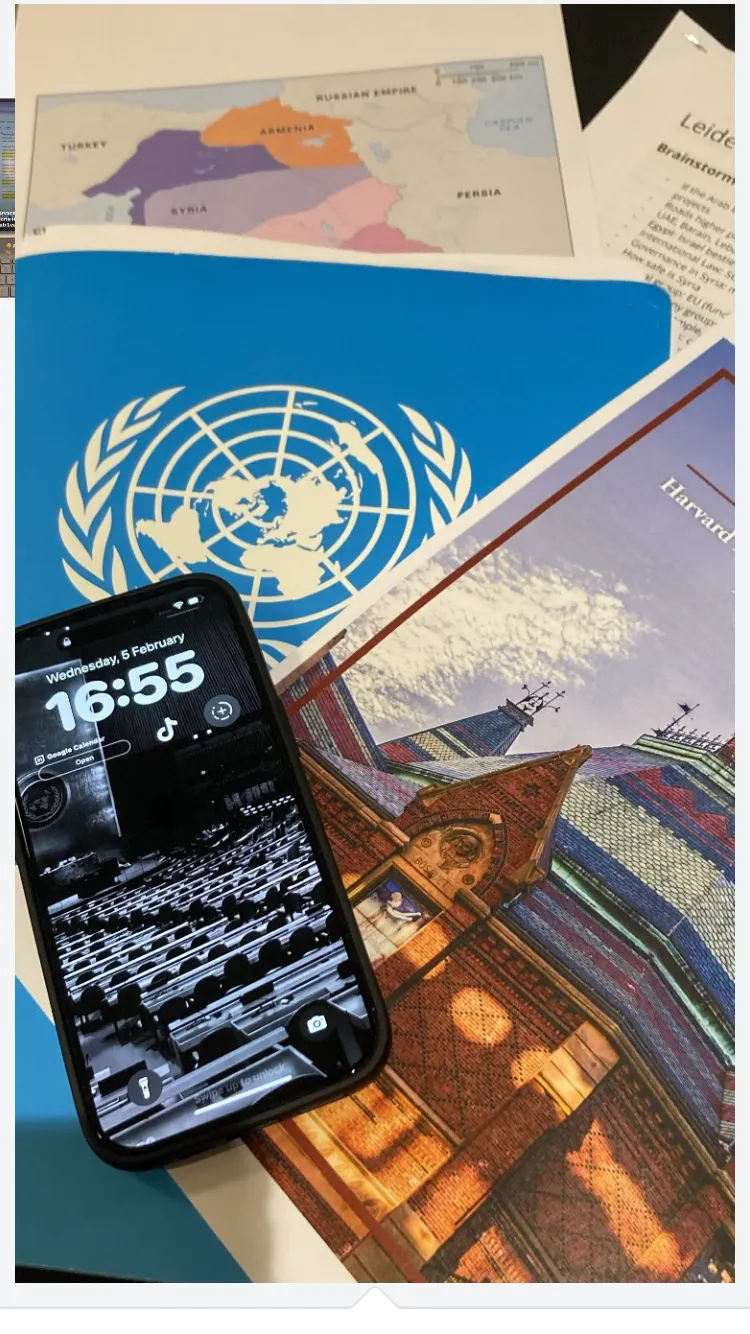Doubling not dueling
How to be an amazing couple in the double delegation committee

Getting invited to a mock session for HNMUN 2025 prep—without technology—was a challenge. And honestly? The idea of double delegation was a bit scary at first. But then I got paired up with Dani, and together, we slayed as Algeria. If you're preparing for an MUN with a partner representing the same country or just curious about double delegation committees, this article is for you. And if you're one of my delegates at EuroMUN 2025, you definitely need to check this out.
Double disaster or double domination?
Most MUN committees have single delegates, meaning one person represents a country. But in a double delegation, two people share that responsibility. This happens in larger or more complex committees, like the General Assembly. Since you’re both speaking for the same country, teamwork is essential. You need to divide tasks, stay in sync, and make sure your messaging is aligned.
And that’s where the real challenge comes in: balancing the committee room and the backroom. While one of you holds down the fort in formal debate, the other should be whispering with allies, making side deals, and working the room. Communication is key—otherwise, you might accidentally end up in two different alliances. I’m not great at unmods or backroom negotiations, so Dani took charge of finding allies while I handled speeches and debate.
The resolution is always being written in the background. If you’re not involved, someone else is shaping the document for you. Make sure one of you is always in the drafting process to keep your country’s interests front and center.
Our strategy was simple. Every 15 minutes, Dani would step into the room, swap notebooks with me, and update me on negotiations. That way, we always knew what was going on without needing to break character in committee.
Other ingredients for success
Before the conference, sit down with your partner and get your strategy straight. Know your country’s stance, key arguments, and how you want to approach the debate. Dani and I met four hours before our committee—at a fancy café, of course. It was 70 percent gossip, 30 percent actual planning, but we still made it work.
Staying connected during committee is just as important. Passing notes, whispering quick updates, or even pre-agreed signals—whatever works for you, use it. And don’t just leave after sessions; take time to regroup, adjust your strategy, and figure out what’s working or flopping.
You don’t both need to do everything. If one of you is a research expert and the other is a speech pro, play to those strengths. But remember, MUN isn’t a solo sport. Support each other, back each other up, and make sure your delegation is the one running the show.
Dani and I were not the most organised delegation—unless you count organised chaos. While he was out there brokering backroom deals like a wannabe diplomat in a spy movie, I was in the committee room confidently arguing points we barely prepped (but delivered with conviction). Our notebook-swapping system? Looked like a very suspicious black-market operation. Our strategy meeting? Mostly gossip and overpriced lattes. But somehow, against all odds, we slayed as Algeria. The real lesson? MUN is 10% preparation, 90% looking like you know what you’re doing. And if you don’t—just send Dani to fix it.
 Beatriz Santos Mayo
Beatriz Santos Mayo